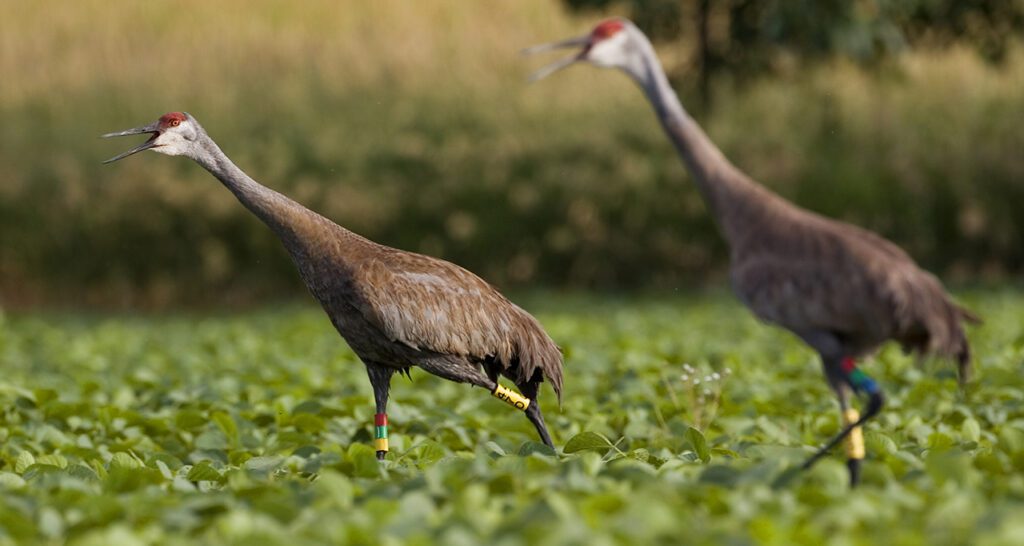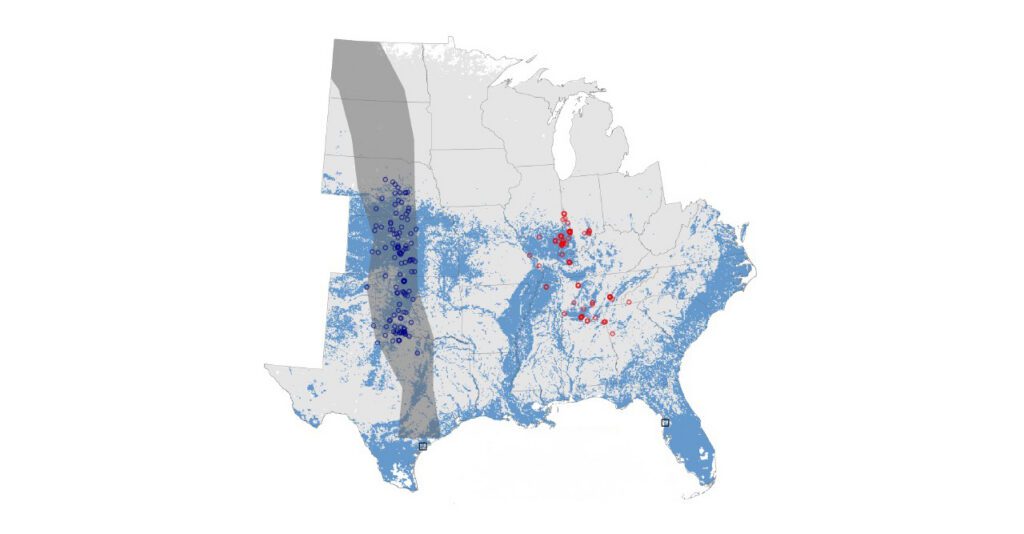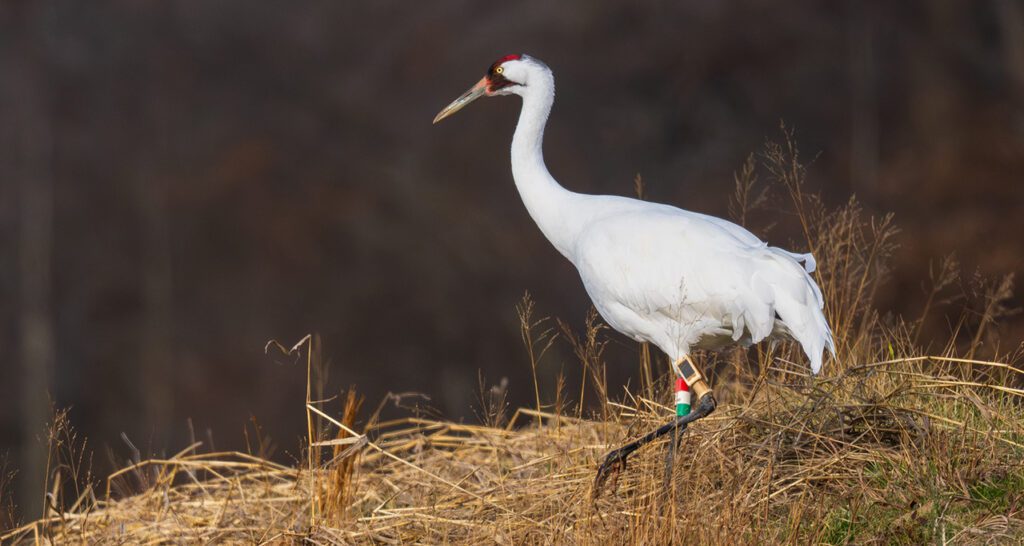Very few Wisconsinites Support a Sandhill Crane Hunt According to Statewide Survey
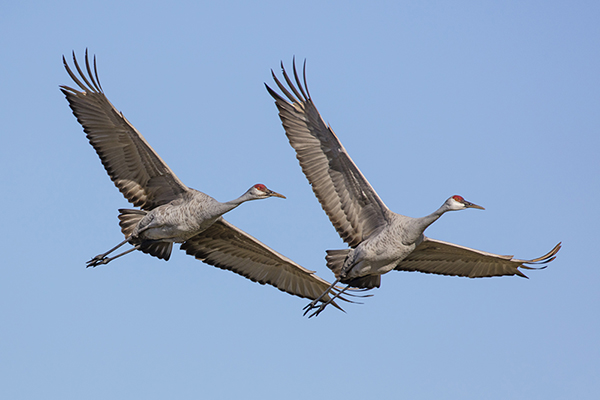
CONTACTS: Jodi Legge, Director of External Affairs, 608-356-9462, ext. 120
Ryan Michalesko, North America Programs, 608-509-6054
Hunt Would Not Address Crop Damage Issue for Wisconsin Farmers
March 12, 2024 (Baraboo, WI) – A new study led by Wisconsin researchers reveals that only 17.4 percent of Wisconsin residents support a crane hunting season (Fig. 2.1), and less than five percent of Wisconsinites reported that they were very likely to participate in a crane hunt (Fig. 2.2). The study was initiated and funded by the International Crane Foundation (ICF) and conducted in close collaboration with the University of Wisconsin-Madison Nelson Institute for Environmental Studies.
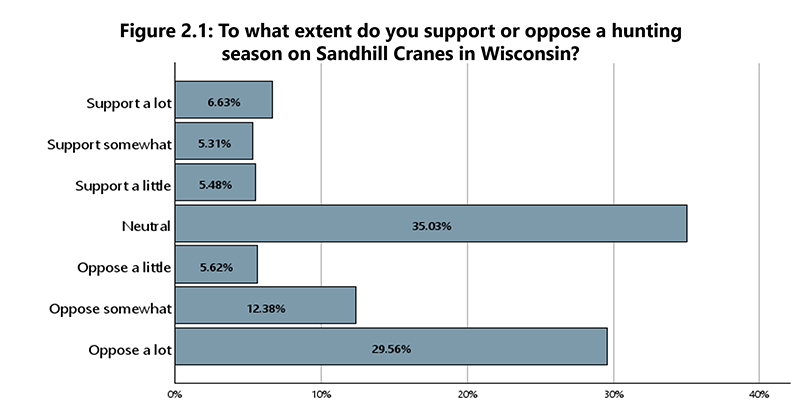 “The International Crane Foundation has long believed that most Wisconsinites do not support a hunt on Sandhill Cranes, and few would participate in a hunt if approved. Now we have objective data to prove it. We need to focus on real solutions for farmers who suffer crop damage from cranes.”
“The International Crane Foundation has long believed that most Wisconsinites do not support a hunt on Sandhill Cranes, and few would participate in a hunt if approved. Now we have objective data to prove it. We need to focus on real solutions for farmers who suffer crop damage from cranes.”
Dr. Rich Beilfuss, President and CEO
The International Crane Foundation (ICF) is working to solve the issue of crop damage by cranes in Wisconsin through legislative and other actions but does not agree that a proposed hunt would have any significant benefit for farmers. The organization commissioned the survey to understand the attitudes of the state’s residents toward the proposed hunt.
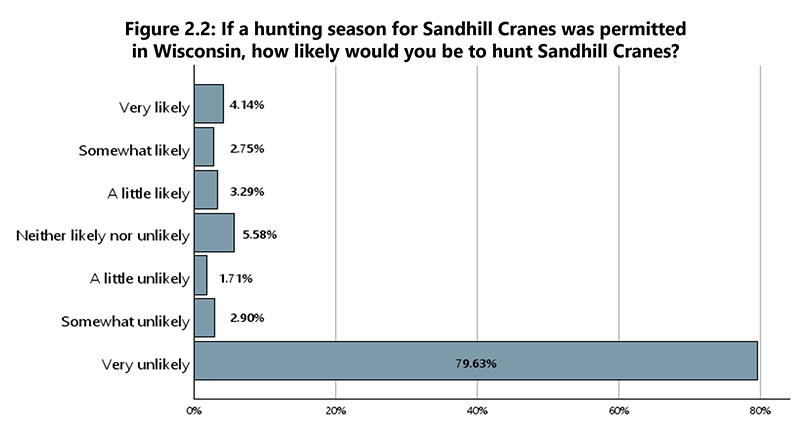
In December 2023, researchers at ICF collaborated with the UW-Madison Nelson Institute for Environmental Studies to conduct an unbiased study on the Sandhill Crane hunt issue. The survey was administered by the UW Survey Center utilizing the WisconSays panel, which was scientifically designed to represent the state’s population as a whole. The statewide survey included Wisconsin residents aged 18 or older, with a total of 2,769 individuals completing the survey, constituting a 78.1 percent response rate.
While an approved hunting season for cranes would allow farmers to qualify for claims under the statewide Wildlife Damage Abatement Program, hunting fees would only produce a tiny fraction of the revenue needed to cover crop losses in the state. Survey participants were asked how much they would be willing to pay for a permit to hunt Sandhill Cranes. One-third (33.8 percent) said they would only be willing to pay $3, while another third (31.5 percent) said they would pay a maximum of $15 for the right to hunt cranes (Fig. 2.3). Even with a $15 application fee, with $2 per application going to the Wildlife Damage Abatement Program, only about $10,000 in revenue would be generated to fund crop damage abatement and compensation—less than 1 percent of the funds needed to resolve the more than one million dollars in crop damage complaints that could be filed annually.
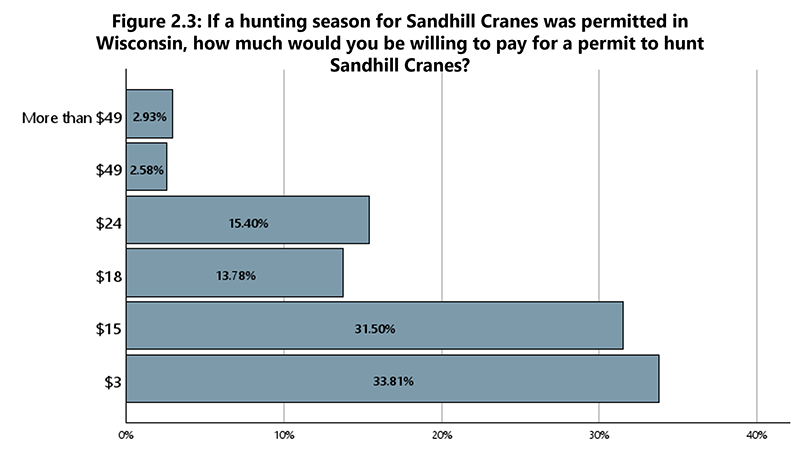
ICF further estimates that a Sandhill Crane hunt in Wisconsin would operate at a net loss to the state, with a low level of permit revenue and high administrative costs (including the cost of enrolling producers in the program, providing abatement assistance, conducting crop appraisals, processing damage claims, and providing damage prevention tools/supplies).
“We hope legislators will join us in promoting and supporting real solutions to crop damage that will support Wisconsin’s farmers,” said Beilfuss.
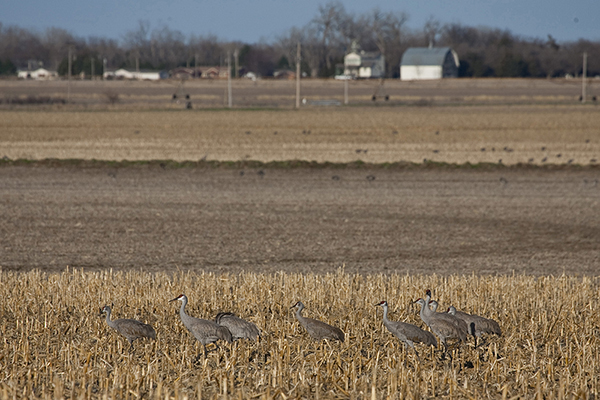
About the Sandhill Crane
Sandhill Cranes are a beloved species and a remarkable conservation success story. Nearly lost from Wisconsin in the last century, Sandhill Cranes have rebounded dramatically, and tens of thousands now breed across Wisconsin or migrate through in the spring and fall. Most of their amazing recovery has occurred on Wisconsin’s agricultural fields and wetlands, and ICF is grateful to Wisconsin farmers for their lead role in supporting cranes.
Sandhill Cranes support farmers, too, by eating waste grain, earthworms, and agricultural pests most of the year. But in the spring, Sandhill Cranes feed on germinating corn seeds after planting and can cause significant damage to corn crops. Wisconsin farmers report nearly 1 million dollars in field corn losses each year due to Sandhill Canes, according to the U.S. Department of Agriculture. These losses are compounded by damage to corn by blackbirds, pheasants, and other birdlife.
For more than 30 years, ICF has worked in these agricultural areas to learn more about their ecology and how the farming system is impacted by the presence of cranes. Through its research, ICF knows that different crane social groups (breeding versus non-breeding) use fields differently and their breeding ecology – they live long but are slow to reproduce – makes cranes an atypical game bird. This means that effective solutions to crop damage by cranes don’t involve hunting.
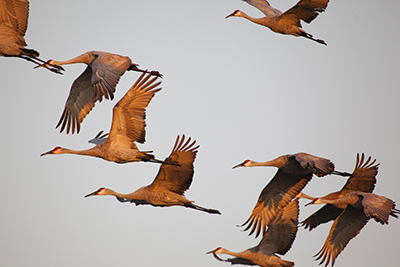
Better Solutions
“We don’t believe hunting is a solution,” said Anne Lacy, ICF’s Director of Eastern Flyway Programs – North America Programs. “There is no sustainable level of Sandhill Crane hunting that will solve crop damage or adequately compensate for crop losses.”
There are other solutions, however. ICF helped develop an effective, non-toxic chemical deterrent (Avipel) that is available to farmers and is scientifically proven to reduce crop damage by cranes and other birds. Avipel works but is costly for farmers, inconvenient to use (it must be applied to corn seed in the hopper), and less effective if applied incorrectly.
To move forward, ICF is taking action to support farmers and the wildlife that makes Wisconsin so special.
“We need programs that help farmers cover the added cost of treated corn seed,” said Beilfuss. “We need seed companies to sell treated corn seed with Avipel or other deterrents applied at the point of manufacture—such availability would substantially reduce the cost of deterrents per acre and the inconvenience of applying deterrents on the farm.
“We also need new deterrents for other crops that are impacted by Sandhill Cranes, especially potatoes, or help farmers to offset the financial losses from predation on those crops.”
The International Crane Foundation is working hard to implement real solutions to crop damage that will actually help farmers right now, and we need your help!
If you are a Wisconsin resident, please contact your legislators in the Wisconsin State Assembly and Senate! Urge them to vote no on a hunting season and instead support real solutions to help farmers, such as funding to offset the cost of Avipel, a known seed treatment effective at deterring crop damage. You can identify your state legislators and find their contact information here.
